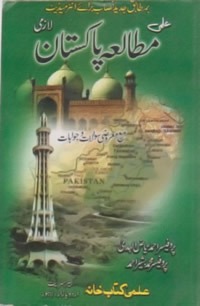 One issue highlighted by the Supreme Court’s disqualification of the Prime Minister is how many people don’t have a good understanding of how courts, parliament and the executive branch are supposed to function together. This is not to say that people don’t understand what is going on in the halls of power. Actually they understand this very well. But what is going on in the halls of power is reflects dysfunction, not the proper functioning of government.
One issue highlighted by the Supreme Court’s disqualification of the Prime Minister is how many people don’t have a good understanding of how courts, parliament and the executive branch are supposed to function together. This is not to say that people don’t understand what is going on in the halls of power. Actually they understand this very well. But what is going on in the halls of power is reflects dysfunction, not the proper functioning of government.
This is not to say that we, the average citizens, are dysfunctional but only that our education system does not make a priority of these things. One of the reasons why we keep having such crises is because there is confusion and disagreement about the working of the governmental system because most people aren’t taught about these things early on in school. I vaguely remember just the one chapter of ‘parliamani nizam’ (parliamentary system) from my ‘Mutaliya Pakistan’ book from back in second year (12th grade). That too did not go deep enough into the matters of the constitution and separation of power principle or the effective working of these pillars of state (judiciary, legislative and executive branches). But even this is more information than many of our citizens will ever have about the way the government works!
I’ve seen people suggesting Supreme Court is supreme, and some saying Parliament is supreme but no one seems to suggest that it is the constitution which all of the pillars of state are trying to uphold. And that one institution does not need to be superior to the other or does not have to encroach its jurisdictional boundary as explained in the constitution, to do its job. All institutions need to work together to make an effective and working state.
Many people also seem to think that every institutions will naturally fight for supremacy. Partly this is because our history is filled with the eternal battle between military and civilian institutions. Today, the civilians are supreme and individuals favour one institution or another institution based on the need of the hour for their political party, not the good of society. For example, PML-N supporters opposed the judiciary to the point of storming the Supreme Court when it threatened Mian Nawaz, but today are supporting the judiciary because they think it will hurt the PPP.
Needless to say, various institutions within our system have also not been a paragon of how a democratic state institution should work and that has not helped the situation any, further playing into the hands of the media and its anchors who exploit these problems to advance their own fame and fortune as was recently exposed in plain sight.
The answer to this is strengthening civic education so that all citizens have a firm understanding of how the system is supposed to work. Everyone wants to strengthen rule of law, but first we must agree on what ‘rule of law’ means. Then it will become clear when individuals or institutions are acting improperly and will make it easier to hold them accountable.
![]()





